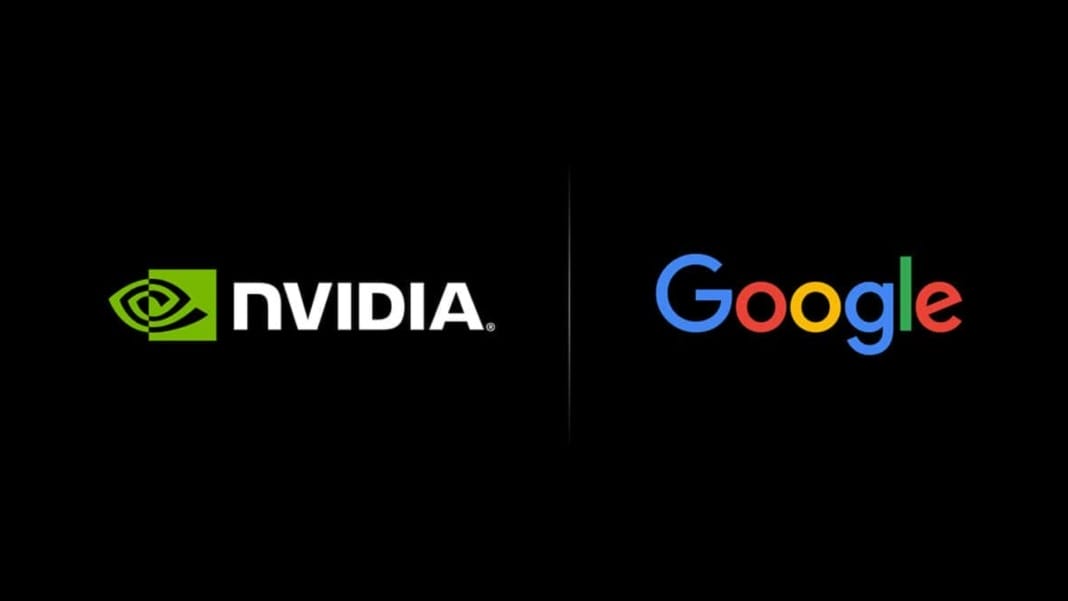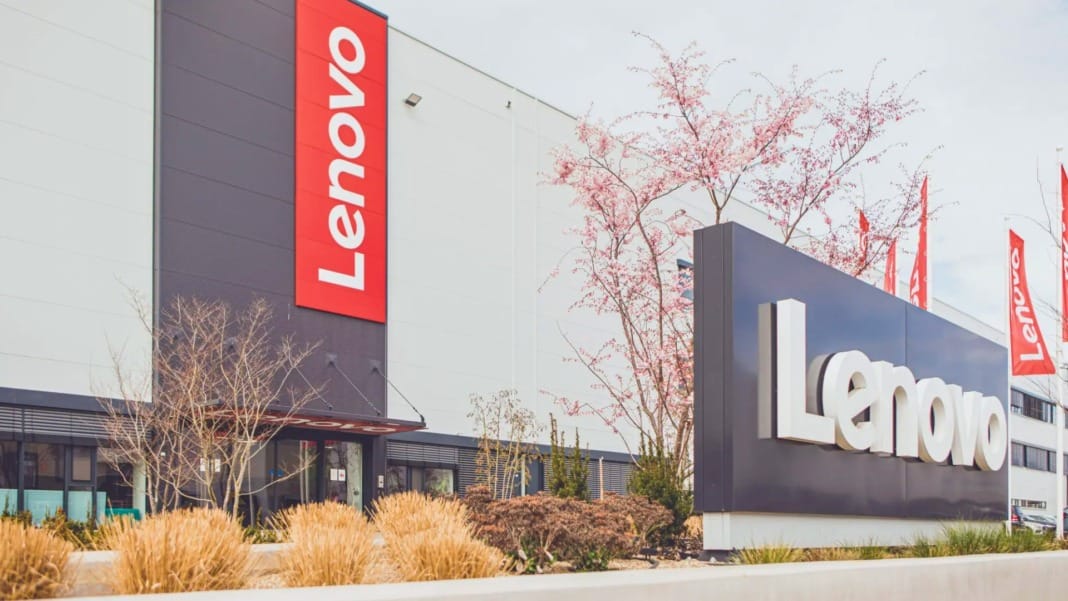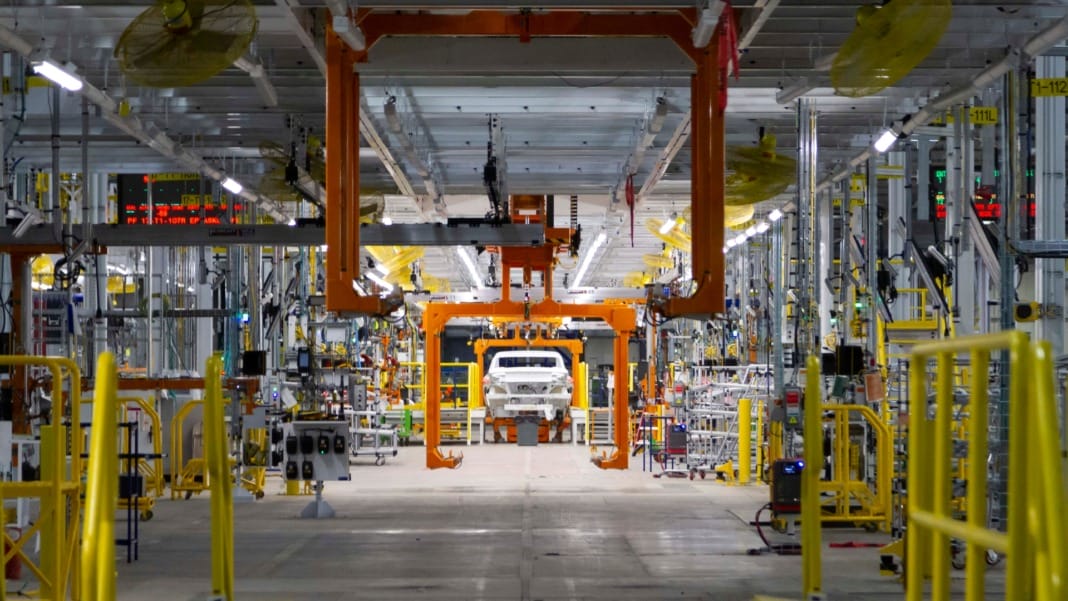NVIDIA, Alphabet, and Google have announced new initiatives to push the boundaries of artificial intelligence (AI) and expand access to AI tools. Their collaboration aims to accelerate the development of physical AI and revolutionise industries such as healthcare, manufacturing, and energy.
Teams of engineers and researchers from Alphabet are working closely with NVIDIA’s technical teams to develop advanced AI applications. These efforts include using AI and simulation to enhance robotic grasping abilities, rethinking drug discovery, and optimising energy grids. Various Alphabet divisions, including Google DeepMind, Isomorphic Labs, Intrinsic, and X’s moonshot Tapestry, will share insights into these collaborations at the NVIDIA GTC global AI conference.
To support AI research and production, Google Cloud will be among the first to adopt NVIDIA’s newly launched GB300 NVL72 rack-scale solution and the RTX PRO 6000 Blackwell Server Edition GPU.
Additionally, NVIDIA will be the first industry partner to implement SynthID, a Google DeepMind AI technology that embeds digital watermarks into AI-generated images, audio, text, and video.
Sundar Pichai, CEO of Google and Alphabet, highlighted the significance of this partnership, stating, “I’m proud of our ongoing and deep partnership with NVIDIA, which spans the early days of Android and our cutting-edge AI collaborations across Alphabet. I’m really excited about the next phase of our partnership as we work together on agentic AI, robotics and bringing the benefits of AI to more people around the world.”
Jensen Huang, founder and CEO of NVIDIA, also emphasised the collaboration’s impact, saying, “Alphabet and NVIDIA have a longstanding partnership that extends from building AI infrastructure and software to advancing the use of AI in the largest industries. It’s a great joy to see Google and NVIDIA researchers and engineers collaborate to solve incredible challenges, from drug discovery to robotics.”
Responsible AI and open model development
Google DeepMind and NVIDIA are focusing on enhancing trust in generative AI by ensuring content transparency. NVIDIA is the first external user of Google DeepMind’s SynthID technology, which embeds watermarks into AI-generated content. This feature helps maintain content integrity while ensuring AI-generated images, audio, text, and video are accurately attributed.
The companies are also collaborating to optimise Google’s open AI models, known as Gemma, for NVIDIA GPUs. The latest version, Gemma 3, represents a significant advancement in open AI development. NVIDIA has made Gemma more accessible by integrating it into its AI platform, enabling developers to run it as an optimised NVIDIA NIM microservice. This enhancement leverages the NVIDIA TensorRT-LLM library to boost performance.
Beyond model optimisation, Google DeepMind and NVIDIA are extending their partnership to improve Gemini-based workloads on NVIDIA’s accelerated computing platform via Vertex AI.
AI-powered robotics and real-world applications
Alphabet’s Intrinsic is focused on developing AI-driven robotics for manufacturing. Currently, most industrial robots require manual programming, a costly and time-consuming process. By integrating NVIDIA’s Isaac Manipulator foundation models into Intrinsic Flowstate, the companies aim to create a universal robot grasping capability. This will enable robots to adapt and perform tasks with greater flexibility while reducing the time needed for programming.
At the NVIDIA GTC conference, Intrinsic will also showcase an early OpenUSD framework that connects Intrinsic Flowstate with NVIDIA Omniverse, allowing real-time visualisation of robotic workflows across different platforms.
Additionally, NVIDIA and Google DeepMind have teamed up with Disney Research to launch Newton, an open-source physics engine powered by the NVIDIA Warp framework. This new engine, compatible with MuJoCo, accelerates robotics machine learning workloads by over 70 times compared to current GPU-based simulators.
Beyond robotics, Isomorphic Labs, founded by Google DeepMind’s CEO Demis Hassabis, is leveraging AI for drug discovery. The company has developed a high-performance drug design engine hosted on Google Cloud and powered by NVIDIA GPUs, aiming to advance medical research and improve human health.
X’s moonshot project, Tapestry, is also collaborating with NVIDIA to develop AI-powered solutions for the energy sector. Their joint research focuses on improving the speed and accuracy of electric grid simulations to support a more sustainable and resilient power infrastructure.
AI infrastructure for the next generation
Google Cloud is set to become one of the first platforms to offer the latest NVIDIA Blackwell GPUs, including the GB300 NVL72 and RTX PRO 6000 Blackwell Server Edition. These cutting-edge GPUs, built on NVIDIA’s Blackwell architecture, offer a significant boost in AI performance compared to previous models.
The GB300 NVL72 provides 1.5 times more AI processing power than its predecessor, the GB200 NVL72. It also offers a 50-times revenue growth opportunity for AI factories compared to those using NVIDIA’s older Hopper architecture. Meanwhile, the RTX PRO 6000 Blackwell GPU is designed for both AI and visual computing, catering to industries such as healthcare, manufacturing, and live broadcasting.
Google Cloud has also introduced A4 and A4X virtual machines, making it the first cloud provider to support both NVIDIA B200- and GB200-based instances. The A4 virtual machine is now available, with A4X set for release soon.
To further enhance AI development, Google Cloud and NVIDIA have collaborated to optimise popular open-source machine learning frameworks, including JAX and MaxText. These frameworks, designed for large-scale AI training, now run more efficiently on NVIDIA GPUs, enabling faster and more scalable AI model training.
Through these joint efforts, NVIDIA, Alphabet, and Google are shaping the future of AI, making advanced technology more accessible and driving innovation across industries.





